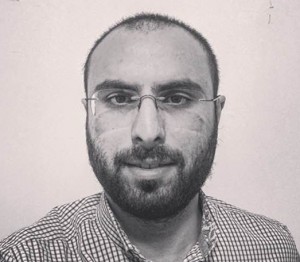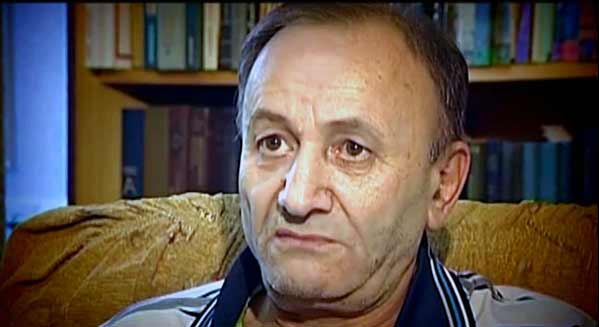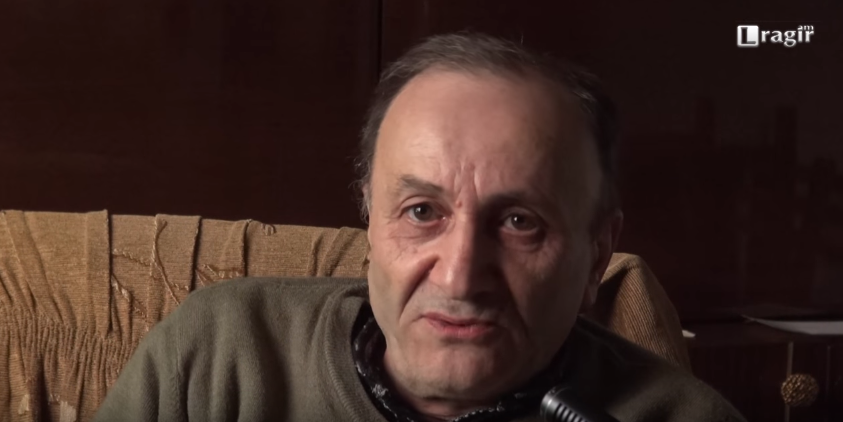Lebanese lessons on Human Rights

This interview was conducted with Mr. George Ghali from the organization ALEF-act for human rights (ALEF) in Lebanon. It continues the Peace Dialogue series of interviews on the issue of human rights violations in the armed forces a series of conversations aimed at raising awareness around the effective protection of human rights in general and specifically human rights in the armed forces.
ALEF – act for human rights, is a Lebanese non-governmental, non-partisan, non-profit human rights organization that seeks to strengthen respect and fulfillment of human rights as a cornerstone of social, economic, and political development. ALEF’s projects combine research with awareness-raising and advocacy campaigns in order to mobilize both the community as well as policy and opinion makers towards the protection, respect, and fulfillment of human rights.
Mr. George Ghali is the Monitoring and Advocacy Program Officer at ALEF, Lebanon. G. Ghali has held different positions at ALEF where he managed several projects including the promotion of protection mechanisms against arbitrary detention, the prevention of torture, the abolition of the death penalty, the Syrian Refugee Monitoring Unit (SRMU) and several other human rights focused actions. In addition to his project related work G. Ghali authored and co-authored a number of articles on human rights issues in Lebanon and the MENA region.
Lebanon is currently in a conflict zone and has a very high index of militarization; ranking 19th among the most militarized states in the world, and the 7th in the Middle East. Armenia is in a similar situation in terms of militarization and its effect on human rights. Due to this similarity and this type of interview along with articles such as this one, understanding these similarities can be helpful for civil society and human rights defenders to help them analyze, understand and find solutions to human rights problems and in terms of issues in the armed forces in both countries.
Since the end of the Lebanese Civil War in 1990, Lebanon has witnessed a myriad of human rights violations, which according to G. Ghali were mainly reflected through rampant impunity and constant failure to uphold Lebanon’s laws on human rights and accountability.
“The withdrawal of the Syrian troops in April 2005 opened a new opportunity for better human rights practices. Although Lebanon did show moderate progress in making an institutional commitment to human rights between 2005 and 2010, the escalation of tension and political polarization degraded the scope and willingness to fulfill these commitments.” and “The surge in violence that Lebanon witnessed in 2013 was the most serious threat to the right to life in Lebanon since 1990. It requires a strategic and multi-level intervention to counter violent extremism and lay the foundations for a proper system to secure human rights compared to the existing scattered or stand-alone reactions.” said G. Ghali.
According to G. Ghali this approach might seem reasonable, but it is unpopular and even condemnable by some. It is worth insisting that in its fight against terrorism, the Government of Lebanon should still uphold its commitment to universal human rights and Lebanon’s obligations under International law. It is important to maintain a commitment to these laws, at least in order to avoid the frustrations that can emerge from illegal arrests and detention, unfair trials, torture, stereotyping and other violations which in turn can be used by terrorist groups to enroll more people and further radicalize their constituency.
According to G. Ghali, in order to successfully implement reforms to remedy human rights violations in Lebanon, it is important to realize that challenges today can be attributed to numerous factors such as the absence of a strong legal culture, inadequate and archaic legislation, poor law enforcement, nepotism and corruption, a culture of impunity, the lack of a frameworks of accountability and others.
However, the major challenge remains the absence of respect for human rights values in the social norms of the Lebanese population. This has led to a plethora of unreported violations and abuses from domestic violence to discrimination in the workplace. In the last several years, it was very regretful to see the culture of impunity and weak rule of law being solidified; causing many non-state actors to take the law into their own hands.
According to G. Ghali, since 2005, the Lebanese Armed Forces (LAF) is believed to be the alleged perpetrators of several human rights violations. There is a systematic trend of torture (see 2014 UN-CAT report on Torture in Lebanon), arbitrary arrest and incommunicado detention (see arrest of terrorism suspects), IHL violations (see Nahr el-Bared clashes with Islamic groups), Enforced Disappearance (see discovery of mass grave in Ministry of Defense). The most worrying issue according to G. Ghali remains the deeply rooted spirit of impunity raised by two major areas:
1. The level of immunity given by society to the LAF by tolerating and justifying any human rights violation committed by them.
2. A military tribunal that in its structure and modus operandi erases most opportunities for accountability.
Which can be summarized as human rights violations committed by the LAF are essentially centered around an absence of a rule of law framework.
According to G. Ghali and ALEF, an important issue is to generate internal mechanisms that would increase trust towards LAF, rather than prestige. Most importantly however, introducing human rights protection must be seen as an essential element in the work of the LAF in countering terrorism. “The LAF is in the forefront of fighting terrorism. The approach remains a militarized one rather than a process that includes mainstreaming and fighting root causes.” said G. Ghali.
In Lebanon, like in Armenia, information regarding the armed forces is strictly limited and the society possesses few tools for the monitoring in this sphere. It is also difficult to find sources of information and even more difficult to verify that information. Even the UN-CAT in its report spoke about concerns rather than issues related to specific cases. The main reason for this, according to G. Ghali is because violations are committed by the intelligence branch, but also because in the current setting there is a general trend of tolerance from Lebanese institutions and international actors. Other problems are also related to retaliation against human rights defenders and individuals that are complaint. For instance, one would recall the Lebanese Center for Human Rights (CLDH) breaking and entering incident. Other cases could be categorized as a form of retaliation against individuals that complain and report violations. For instance Layal Al-Khayaj was arrested immediately after she reported through local media the torture and rape that she was a victim of while in detention under the authority of the military intelligence.
Just like in Armenia, in Lebanon access to detention centers is nearly impossible. They are closed institutions and many detainees have restricted access to the outside world. In both countries, the court remains the sole point of interaction with the incarcerated individuals. Monitoring only occurs either by receiving information through the lawyers or by testimonies given by the detainees in front of the judiciary. The monitoring done at that level remains subjective and the reaction of the court represents a systematic violation of human rights.
Again like in Armenia, in Lebanon the courts are part of a repressive system. Therefore, even at court it is impossible to receive justice.
As an example G. Ghali talked about the case of Tarek Raba who had been detained arbitrarily for an extended period of time. The lawyers presented the judiciary with medical evidence and with statements in support of Tarek and evidence to prove that Tarek’s confessions were extracted under torture. The judiciary disregarded Rabaa’s medical evidence and testimony and proceeded with the sentencing. According to G. Ghali such cases are numerous and this practice reflects a systematic practice of torture that can only be monitored and detected through the courts.
Ghali states that in such cases it is almost impossible to reach justice within the country. He believes that the international community could be the biggest ally for the civil society. The law enforcement agencies in Lebanon rely heavily on capacity building and funding by foreign governments
“We seek to establish a framework where support would be conditioned upon the adoption of better human rights practices and therefore push the LAF to such better practices in the long run.” said G. Ghali. He also mentioned that this has been partially successful within the Internal Security Forces (ISF) by pushing it to have an institutional commitment to eradicate torture.
Again like in Armenia, in the context of fighting against external enemies, less attention is paid to human rights violations, while the society has a somewhat complacent attitude towards the state institutions which are responsible for such violations.
With the current fight against ISIS it has become more difficult for civil society and human rights organizations to combat human rights violations in the armed forces.
 The project is supported by The Democracy Commission Small Grants program of the Embassy of the United State of America in Armenia.
The project is supported by The Democracy Commission Small Grants program of the Embassy of the United State of America in Armenia.
The opinions, findings and conclusions or recommendations expressed herein are those of the Author’s and do not necessarily reflect those of the Department of State.
Posted 10 December, 2015















